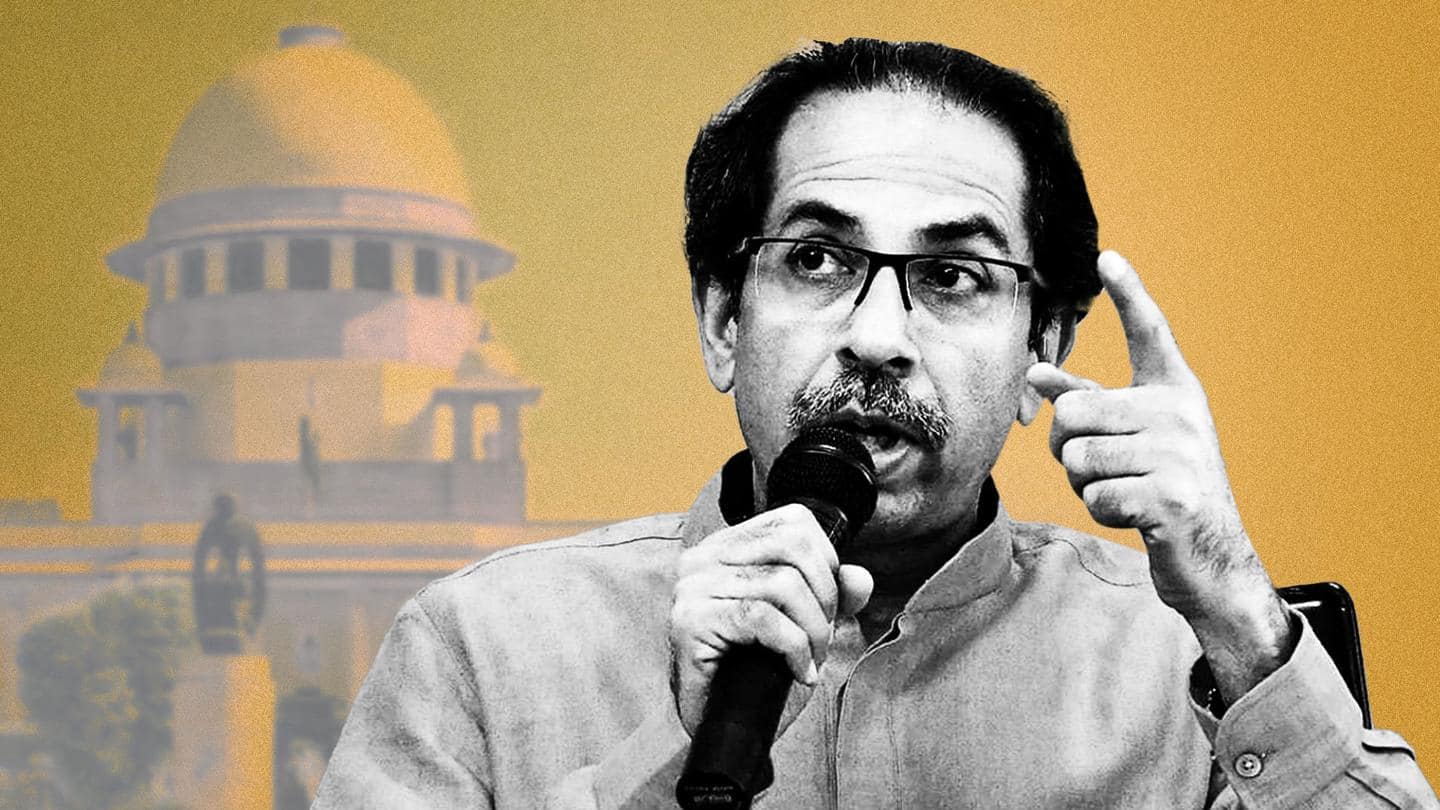
Supreme Court: Setback for Thackeray in 'real Shiv Sena' case
What's the story
In a big blow for Uddhav Thackeray in his battle against Maharashtra CM Eknath Shinde, the Supreme Court on Tuesday declined to stop the Election Commission of India (ECI) from determining whose faction is the real Shiv Sena.
The Thackeray-led faction earlier petitioned the top court to prevent the ECI from deciding on the Shinde-led group's claim over the "real" Sena and its symbol.
Context
Why does this story matter?
After Sena rebel Eknath Shinde formed the Maharashtra government in June, the conflict shifted to seizing control of the party that Thackeray's father—Bal Thackeray—had founded.
Shinde became the CM with the support of 40 rebel Sena MLAs and the BJP.
Thackeray moved the SC seeking disqualification of the rebels and claimed the ECI couldn't decide on the "real Sena" when their disqualification is pending.
Order
What did the SC bench say?
Hearing Thackeray's plea to stop the ECI's proceedings, a constitution bench—led by Justice DY Chandrachud—stated, "We direct that there would be no stay of the proceedings before the Election Commission of India. Accordingly, the interlocutory application is dismissed."
Meanwhile, the legal team of the Shinde faction has already written to the ECI with the details of the top court's order, as per India Today.
Previous observations
Petitions raised significant constitutional issues
Last month, a three-judge bench of the SC said the petitions filed by Thackeray and Shinde factions raised important questions related to the 10th Schedule of the Constitution regarding disqualification, powers of a governor and speaker, and judicial review.
The bench then directed the matter be listed before a larger constitution bench "to decide about the symbol related to the Election Commission proceedings."
Information
What is the 10th Schedule?
The 10th Schedule of the Constitution addresses the prevention of defection by nominated and elected members of a political party.
It also comprises stringent provisions for members who have defected from a party.
To recall, Thackeray's petition had earlier contented that only a merger with the BJP, which would amount to defection, could rescue Shinde and other rebel MLAs from disqualification.
Details
Questions referred for constitution bench's consideration
The three-judge bench had referred eight questions to the constitution bench. Some of them were:
Will a speaker's removal restrict them from continuing disqualification proceedings?
Can Assembly proceedings continue during pending disqualification against its members?
What's the scope of the speaker's power to determine the house's whip and leader? Is a governor's action inviting someone to form a new government amenable to judicial review?
Crisis
More about the Maharashtra political crisis
In July, Thackeray moved the SC challenging the ECI proceedings on the "real" Shiv Sena.
Meanwhile, Shinde's faction claimed to have the support of 40/50 MLAs and 12/18 Lok Sabha MPs from the Sena.
It also asserted its Sena opponents must be removed for disobeying the party whip during the Shinde-led government's floor test, while Thackeray's camp disputed the legitimacy of the trust vote.